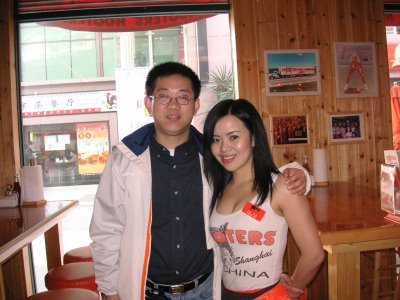Ideal PPC Candidates
The ideal client offers well-branded, discount product or service, in a wide selection, with a unique benefit… that comes with something free. For example: Nike, promoting their latest shoes with a new patented suspension system, in more colors than are available in stores, on sale – with free shipping.
No, not many of those come through the door – but each of those elements are what is needed to set a campaign apart.
1) Well-branded:
It doesn’t matter if you’ve heard of it, only if the target client has heard of it. If you don’t buy widgets, you have no reason to have heard of Acme Widgets… try doing a little research. Use the internet, and ask your uncle who buys widgets for his watchamacallits. They don’t have to be the biggest name out there, but if they are a name people know – that gives you the strongest possible advantage over other advertisers.
In a PPC campaign, unless the brand name is not known, or is similar to a common non-branded search term (for example: if the company’s name was “red tomatoes” and they sold make up,) then we can expect to see click-through rates of over 10% and conversions of over 5% consistently on branded search terms. One of our clients saw click through on their brand name averaging 40%, and conversions averaging 15% on that term. This is a simple matter of making sure that the client is there, at the top of the page, when people look for them.
2) Discount:
Comparison shopping is easy online. If you offer the same or similar product as anyone else, you better be sure you are selling it cheaper – or at least for the same price. This is especially important when the competitor mentions price in the ad. This is more important in women-oriented verticals, and verticals where the product is widely available. The client doesn’t have to offer the lowest price on everything, especially if some of the other factors mentioned here are going in their favor (especially brand and uniqueness,) but they should at least appear to be competitive.
3) Wide selection:
Again, comparison shopping is easy. So is finding exactly the color/style/size or the precise service someone is looking for. If your client doesn’t carry it, chances are, someone else does. A wide selection, or variety of services, allow you to not only advertise that selection in the copy – but to use more tail terms, and get broader coverage.
4) Unique benefit:
Are your client’s widgets the shiniest? Do they come in more colors? Do they widge more effectively than any other widget on the market? Are they highly rated by critics? Bestsellers?
In short, as an advertiser, you should always be looking for what it is about this product that sets it apart. Exclusivity is almost as much of a sales driver as brand or selection – so if your client carries something that can’t be gotten from anyone else, you can capitalize on that.
5) FREE!
People love free. Whether it’s a free pair of sunglasses when you order tanning lotion, or a free night’s stay when you book at least 2 months in advance… but the best offer of all is free shipping. Free shipping is the single biggest reason why a user will click on one listing rather than another. So if it’s at all feasible, try to talk your client into having a free shipping offer of some kind, and be sure to mention it in the copy.

